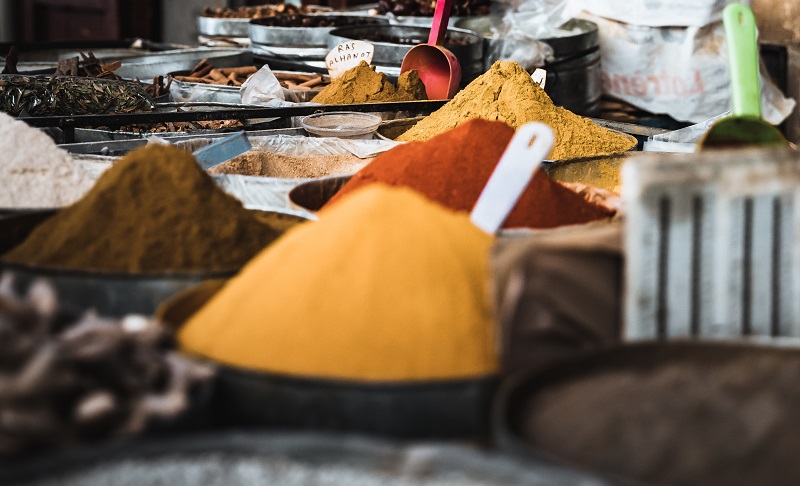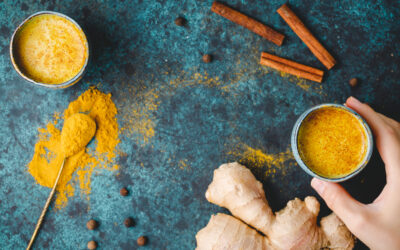Since ancient times, curcumin, the substance in turmeric that gives it its distinctively bright yellow hue, has been used both as a spice and a medicine. Turmeric is regarded as a cure-all in Ayurveda, the Indian system of ancient medicine, treating conditions ranging from stomachaches to skin rashes.
Researchers have now learned that curcumin may be separated and consumed as a supplement to reap even more benefits. Curcumin has a constrained bioavailability when taken alone, nevertheless. In this post, we’ll go over the top health advantages of curcumin as well as the best ways to consume the supplement.
What is Curcumin?
Turmeric, a rhizome plant with the generic name Curcuma longa, contains curcumin, a phytochemical in the curcuminoid family. Although turmeric is most frequently ingested in powder form, it can also be found in its root form, which resembles ginger root.
The amount of curcumin you get from a few dashes of turmeric powder is not very high; turmeric contains only 3% curcumin. However, adding turmeric powder to your meals is a terrific way to add flavor and a golden color. As a result, curcumin is frequently consumed as a supplement.
The majority of curcumin’s advantages are due to its anti-inflammatory and antioxidant characteristics. It has been extensively studied for its impact on aging, pain alleviation, metabolic, heart, and brain health.
Top 5 Health Advantages of Turmeric
1. An anti-inflammatory
The term “inflammation” refers to a broad range of ailments and symptoms. Acute inflammation is required for appropriate wound and cut healing, but persistent interior inflammation is the underlying factor in almost all chronic disorders.
The potential of curcumin to reduce inflammation is one of its most well-known advantages. It has even been demonstrated to have benefits on pain relief that are comparable to those of ibuprofen, but without the negative side effects linked to that family of non-steroidal anti-inflammatory medicines.
A review article from May 2015 that was published in Molecules highlighted the several ways that curcumin decreases inflammation. First off, free radicals and reactive oxygen species, which are pro-inflammatory substances that cause oxidative damage, are scavenged by curcumin’s antioxidant qualities.
Additionally, curcumin inhibits or downregulates inflammatory cytokines such nuclear factor kappa-B (NF-kB), interleukin 1 and 12, and tumor necrosis factor-alpha (TNF-alpha). Since it causes several of the aforementioned chemicals to be activated, increased NF-kB expression is one of the main causes of inflammation.
2. Neuroprotective
The way that curcumin improves brain health and may lower the chance of developing illnesses related to the brain is largely due to the decrease in inflammatory molecules and oxidative
Another mechanism for curcumin’s brain-protective properties was described in a study that was published in Nutrients in October 2019. This mechanism is connected to the gut-brain axis, which is the two organs’ reciprocal link.
Curcumin has an immediate effect on the gut microbiota by promoting the growth of beneficial bacteria and driving out pathogens that are detrimental. Dysbiosis is regarded as a risk factor for the emergence of brain-related medical disorders, hence curcumin promotes brain health by altering the gut microbiome.
Other studies on curcumin have found that the substance passes the blood-brain barrier and inhibits or lessens the accumulation of damaging amyloid-beta and tau proteins, which are indicators of brain aging. The protein known as brain-derived neurotrophic factor (BDNF), which aids in the survival and expansion of neurons, may also be increased by curcumin.
A meta-analysis of data from six trials indicated that supplementing with curcumin significantly increased memory and cognitive function scores in persons without memory problems. The study was published in Phytotherapy Research in March 2019. Although there are not enough human clinical trials to test curcumin’s impact on brain health, numerous animal research have shown that it has positive effects on disorders that affect the brain and memory.
3. Relieving Pain
Curcumin supplements are helpful for lowering joint discomfort, especially in persons who exhibit telltale symptoms of joint disorders.
In individuals with bone and joint disorders, supplementing with 1000 mg of curcumin daily resulted in a significant reduction in pain levels, according to a meta-analysis of eight randomized controlled studies. Compared to over-the-counter or prescription painkillers, curcumin supplementation may be a quick and secure method of pain relief.
4. Cardioprotectant
The leading causes of disability and mortality worldwide include problems that affect heart health, such as unfavorable blood indicators for heart health, carrying excess body fat, and having poor blood sugar control. Curcumin improves blood sugar metabolism and sensitivity while lowering dangerous blood markers for poor heart health, in addition to reducing inflammation and oxidative stress.
Curcumin supplementation at 300 mg per day effectively decreased fasting blood glucose and improved blood sugar levels after three months in a trial of overweight or obese people with blood sugar abnormalities.
Similar to this, a meta-analysis of randomized controlled studies indicated that curcumin supplementation decreased several blood markers for heart health, with a higher benefit shown in people with pre-existing medical issues.
5. Age-Reduction
Last but not least, curcumin may mitigate some of the effects of aging, which are partly mediated by inflammation. Pro-inflammatory chemical levels rise, and cells and DNA suffer oxidative damage, which is the hallmark of the appropriately termed “inflamm-aging” process. Curcumin inhibits or downregulates various activities, as was previously mentioned.
The effects of curcumin on sirtuin production, autophagy, and decreasing cellular senescence are only a few of the other processes underlying its anti-aging characteristics, as discussed in a review article that was published in the International Journal of Molecular Sciences in March 2019. In a nutshell, senescence is the process through which cells cease proliferating and lose function, autophagy is an internal recycling process that eliminates damaged or harmful chemicals, and sirtuins are proteins that are connected to an extended lifetime. Accelerated aging is linked to malfunction in all three pathways; curcumin may counteract these dysfunctional processes.
Curcumin’s Forms and Bioavailability:
Although curcumin has numerous advantages, the substance is not particularly bioavailable on its own. Poor absorption, quick conversion and elimination, and low water solubility are some of the causes of this.
Curcumin can be made more accessible in a variety of ways so that cells and tissues can use it. Using liposomal curcumin is one approach. Curcumin’s issue with low water solubility is improved by liposomes, bilayer carriers that protect the hydrophobic curcumin in their center and use their outer layers to interact with aquatic environments.
Adjuvants and the formulation of curcumin into nanoparticles or phospholipid complexes are further ways to improve bioavailability. The adjuvant that is most frequently utilized is piperine, which is the active ingredient in black pepper. It may up-2000% improve curcumin’s bioavailability, according to research.
In order to ensure that your body can absorb and benefit from all of curcumin’s advantages, search for curcumin supplements — whether in capsule or powdered form — that use one of these techniques to boost its bioavailability.
Key Learnings:
The primary mechanisms by which turmeric’s active ingredient, curcumin, affects human health are through its antioxidant and anti-inflammatory qualities.
Curcumin’s capacity to protect the brain, reduce pain, enhance heart health, and slow down some elements of aging are among its most extensively researched advantages.
On its own, curcumin is not particularly bioavailable. Formulating it as a liposome, nanoparticle, or with adjuvants like piperine from black pepper can all help to boost its bioavailability.”




